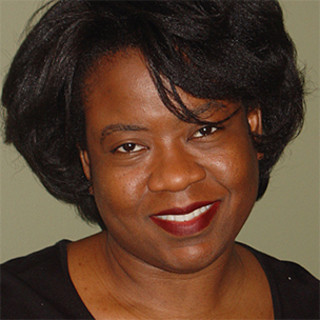If I look back through time, each person was different. The first person was the hipster high school English teacher who sported a beard, wore corduroy pants every day and drove a blue Camaro. Years later came the college cell biology teacher who enjoyed fly-fishing and paid the balance on my delinquent tuition account so that the registrar would release my transcripts. She was followed by the dean who rolled her eyes at me when I was making excuses about why I did poorly on my first set of medical school exams. Years later, it would be the straight-laced NIH funded researcher whose studies change the way that we certain high-risk pregnancies. Then followed the unbelievably laid back clinician-scientist who would teach me important lessons about managing high-risk pregnancy and especially about compassion when he delivered my preterm twins.
Most recently, it was the researcher who provided emotional support as I cried silently over a career that became something other than what I had planned. What these individuals have in common is that at some point in time they saw in me what I did not see in myself. They served as mentors when I didn’t ask to be mentored. They pushed me in directions to help me achieve the best me that I could be.
Who am I? I am a mother, a wife, a clinician, an educator, a researcher and a leader. Not necessarily in that order. At any given time one can supersede the other. The one thing I do know is that it is difficult being all of those things at once. At any given moment, one of those titles requires a little more of me. Sometimes, they need more than I can provide. What has helped me in the juggling act has been the advice and support of my mentors. The definition of a mentor has been described in many different ways. Most commonly it is accepted that a mentor is someone who teaches, advises or provides support to someone who is less experienced. The benefits of mentorship over time has been extensively studied. Mentoring can lead the recipients to higher self-confidence, better control of their career, expansion of their network, and improvement in management and leadership skills. You are often advised to find a mentor, and it is widely accepted that mentorship with the right person is mutually beneficial.
When I began my residency training in the year 2000, mentorship was mostly found among those within your proximal environment. These were the people with whom you trained at a current or former institution. Mentors from afar were often identified through your existing network of mentors. I remember the very first time I attended an annual scientific meeting my mentor made a point of bringing me around to some of the pioneers in maternal-fetal medicine and introducing me to them in the hopes that my career would benefit in some way. Over time Internet changed everything. Because of Wi-Fi I can search the Internet on any given topic and identify experts near and far. I can read their publications at home or while waiting in line at Costco. Online communication is a game changer for mentorship. With a keystroke, I can ask an author about the scientific methods of their latest paper or receive coaching on practice management. With widespread Internet use, some would argue access to mentoring has become easier, but it is not without its challenges.
The digital age has ushered in the expectation of immediate response. Mentoring from a distance may do little to give the mentee a realistic expectation of the time constraints on the mentor. Depending on the modality used for mentoring, it may make it more difficult to form a personal connection. It may also be more difficult for there to be accountability or a sense of personal responsibility. Lastly, the appearance of accessibility may preclude a realistic assessment of the given resources of any individual. In other words, we have come to believe that anyone can have access to proper mentoring if only they reach out for it.
The reality is that you still need the personal face-to-face interactions. I was excited to attend my annual scientific meeting because of the science and because I am always reinvigorated when I return home. However, it struck me that throughout the week, everywhere I looked, it appeared that there were ongoing mentoring sessions. Perhaps this is new. Or perhaps I never noticed it before. They met at the bar, at the restaurant, at the coffee shop and even at the gym. The topics varied and included research, work-life harmony, clinical management, practice management, wellness, and childrearing. The recipients ranged from students to senior faculty and the society leadership. Some were formal program with the society pairing high school students with local doctors or residents with established Maternal Fetal Medicine faculty but most were unstructured. Mentoring relationships that started over email, the telephone or social media were extended and solidified. You often heard, “We met through social media” or “It’s great to put a face to the name.”
As a member of some of the same social media groups as these individuals, I watched as these relationships developed. The questions that were once relegated to the closest mentor can be asked of the masses. From there a match can be made not with the closest person but perhaps with the best person for the scenario. But in the end, none were satisfied until they met in person. At the meeting, those relationships were made whole. Modern technology has made it easier for us to connect with each other but it cannot replace the face-to-face interactions.
This year, I returned from my annual scientific meeting reinvigorated. It wasn’t the science that did it. This nostalgic romantic was reinvigorated by the reminder of the need for human connection that unifies all of us regardless where we are in our lives.
Judette Louis MD, MPH is a Maternal Fetal Medicine specialist and Associate Professor of Obstetrics & Gynecology at University of South Florida. She is passionate about mentoring and supporting the next generation of physicians. Connect with her on twitter @ JudetteLouis







